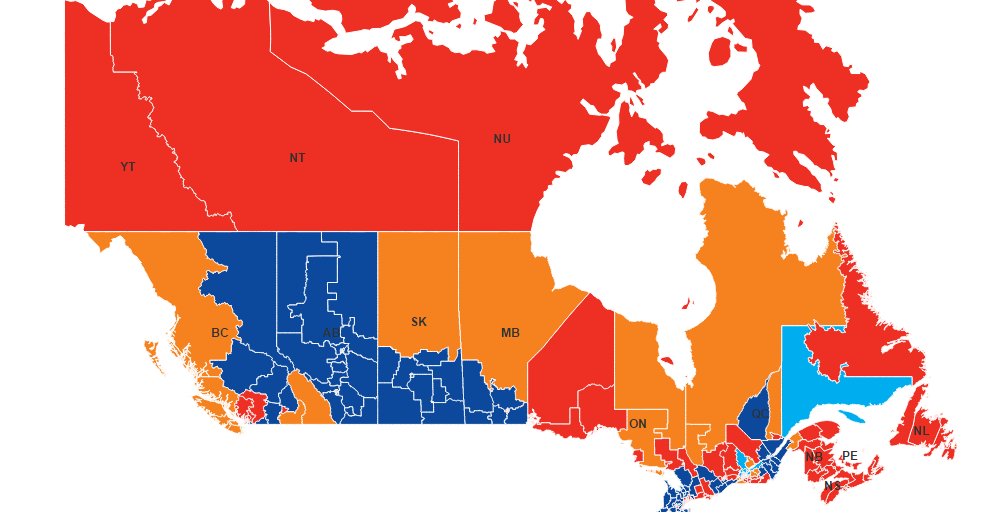Ottawa Immigration Lawyers Saw Xenophobia, Anti-Immigration Sentiments Spring Forth as Nation Headed to Polls
The current federal election and the results on October 19th carries a sense that it may be one of the most important Canada has ever seen. And the topic of immigration, the rights of immigrants and their families, and the attitudes towards ethnic, cultural, and religious minorities seem to all be on the line, too. With all eyes on Ottawa, immigration lawyers and advocates continue to work towards getting fair representation for those who are new to our country, in the face of Citizenship and Immigration Canada’s spate of new and restrictive policies over the past several year, now being joined by anti-immigration sentiments in the election campaign itself.
In particular, there has been criticism of an implicit anti-Muslim agenda in the Conservative Party of Canada’s campaign, which has been echoed by much more overt sentiments in the public. On the political level, the primary focus of recent criticism has been the recent Zero Tolerance for Barbaric Cultural Practices Act, the title of which is suspected by critics of being informed by ideas of foreign cultures as barbaric and uncivilised as compared to our own. It has been noted that the sorts of crimes covered by the act are already illegal under Canadian law, raising concerns that the act—and the proposed tip line that accompanies it—is aimed specifically at Muslims, Arabs, and others who have arrived by immigration to Canada.
Equally alarming to Ottawa immigration lawyers is the passing of Bill C-24, which has allowed the government to strip Canadians of citizenship, so long as they would not be left stateless. Or the continued strife of Deepan Budlakoti, whose citizenship was revoked in 2010 before this bill was passed, leaving him stateless. The primary targets for expulsion from Canada have been Muslims and the descendants of non-European immigrants.
Add to this promises that, if re-elected, the government will ban public servants from wearing specifically-Islamic religious wear like the Niqab.
While the government and the candidates campaigning for re-election have stopped short of overtly stating an anti-Muslim agenda, there has been a rash of incidents around Canada that sends a very loud, very clear message: to certain Canadians—and it can only be hoped that they make up a fringe, and are not speaking for the majority—want this country to be Muslim- and Arab-free. In Montreal, the NDP candidate for the riding of Pierrefonds-Dollard, Lysane Blanchette-Lamothe, has seen her campaign signs vandalised with the message “No Muslim, no terrorism.” London, Ontario, candidate Khalil Ramal has had as many as 35 of his campaign signs vandalised with slogans such as “Arab scum.” Numerous other election signs around the country have been vandalised with the swastika, the infamous former symbol of Germany’s National Socialist Party which has become synonymous with white supremacy and anti-immigration sentiments worldwide.
Immigration in Canada was once part of what made this country great—the blend of different cultures, viewpoints, and ideas—and it should be again. In this current climate, new arrivals to Canada would not be blamed for living in fear of their neighbours. However, now that a new government has been elected, there is some hope for change. Time will tell if promises will be kept when it comes to welcoming refugees. It is the hope of Ottawa immigration lawyers that no new resident of our country should continue to feel fear.
Share this article
Arghavan Gerami
Arghavan Gerami is the Founder and Senior Counsel at Gerami Law Professional Corporation ('PC'), a full-service immigration law firm in Ottawa, Ontario. Since 2011, Ms. Gerami has focused her practice on immigration and refugee litigation. Prior to that, Ms. Gerami worked at the Ministry of Attorney General and the Department of Justice and had the privilege of serving the Honourable Mr. Justice M. Evans at the Federal Court of Appeal on immigration and administrative law appeals. Ms. Gerami contributes to the Immigration Law Section of the Canadian Bar Association, the Canadian Association of Refugee Lawyers, and the United Nations High Commissioner for Refugees. Ms. Gerami has also published numerous journal articles and presented at various immigration and refugee law conferences and events across Canada.

